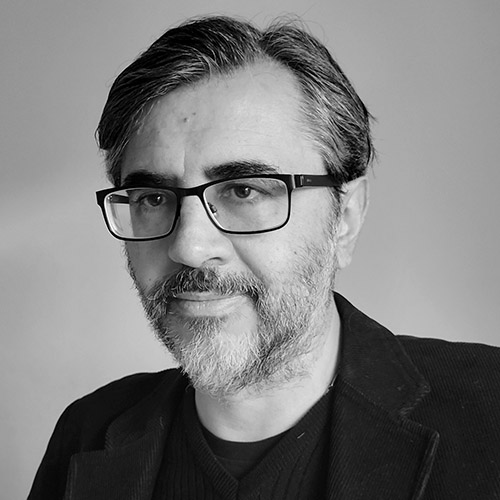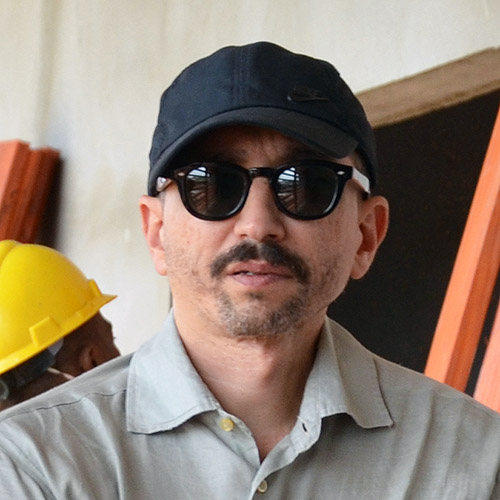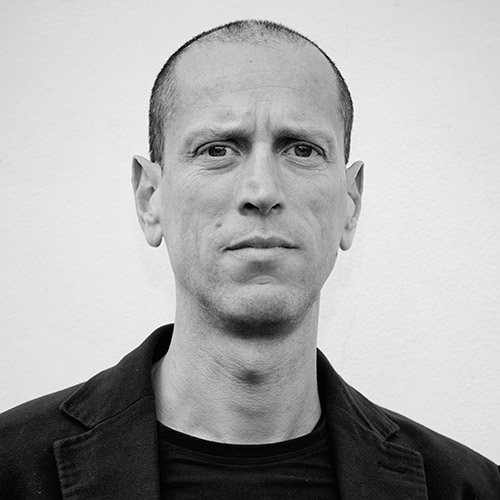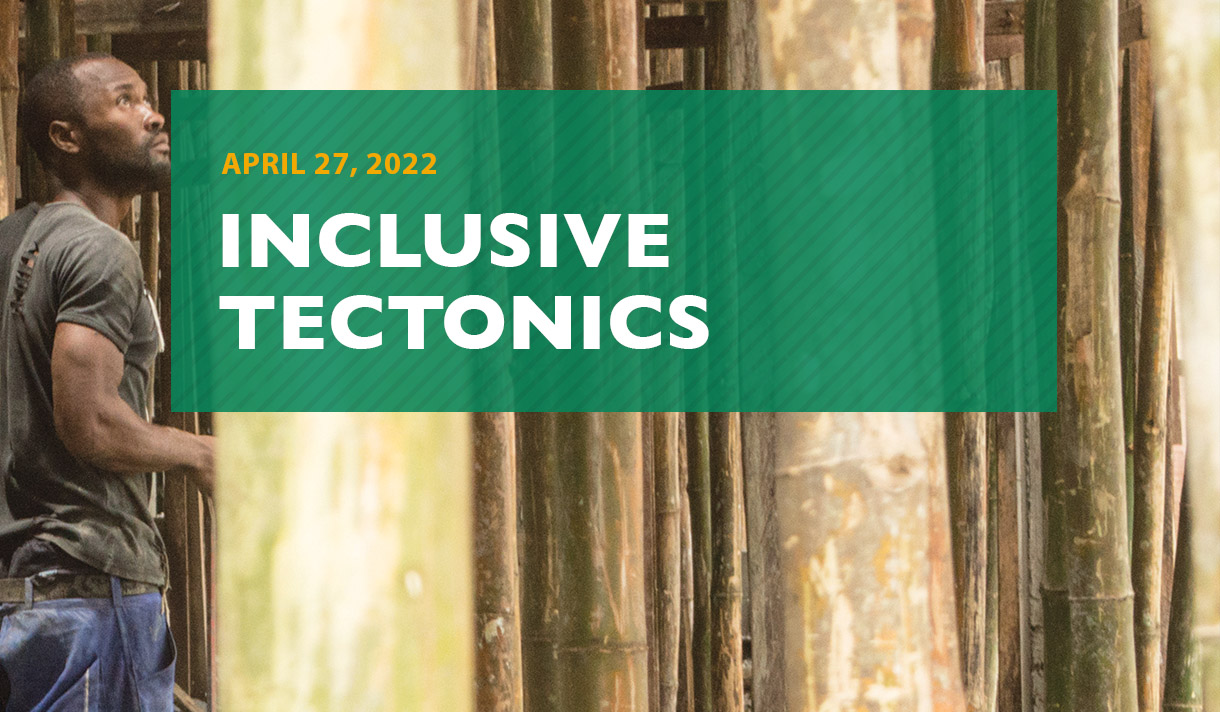Event
Inclusive Tectonics *
April 27, 2022
6:00 PM – 8:00 PM
Online
Architecture concentrated on society can curb marginalization and exclusion and become a driving force for new environmental, political, and social structures. Architecture is a powerful medium for communicating, an instrument through which many urban and outer city areas can claim rights, progress, opportunity, and inclusion. Further, it can help spread and make effective the principles of sociality, participation, healthcare, integration, and legality, everywhere and on any scale. By embodying these principles, architecture in this millennium will increasingly have to engage with and find answers to increasingly complex challenges.
Within the aforementioned context, TAMassociati and CODESIGNLAB will share their pivotal experience with students and the public. The Taking Care event will include two presentations: “Face and Back Sides” and “African Fabbers Atlas.” They will offer an engaging discussion regarding the potential role of indigenous and spontaneous architecture on sustainability in architectural design: How to respond to climatic changes reconciling nature with “tekné?” What is the social role of technology? How can architects reconsider their practices with the goal toward supporting community-oriented projects? These questions will be discussed through a number of paradigmatic projects in order to shape an interdisciplinary approach that bridges different knowledge.
Introduction and Moderation

Alessandro Melis, RIBA ARB AOU
IDC Foundation Endowed Chair, NYIT School of Architecture and Design
Director of the Cluster for Sustainable Cities in the UK
Bio
In 2019, Alessandro was appointed by the Italian Minister of Culture as the curator of the Italian Pavilion at the 17th International La Biennale of Architecture in Venice 2021, and in 2020 Ambassador of Italian Design on behalf of the Italian Minister of Foreign Affairs.
Previously, at the University of Auckland, he was the head of the technology area and director of postgraduate engagement at the School of Architecture and Planning. Between 2010-2013, he was the Director of Urban City Lab at the Institute of Architecture of the University of Applied Arts Vienna (Die Angewandte, Vienna) and visiting professor at the Foster Foundation, and in Germany (Anhalt University, Dessau).
In 1996, he founded Heliopolis 21, a multi-awarded architecture practice based in Italy, Germany, and the UK.
Speakers

Paolo Cascone
Senior Lecturer, School of Architecture + Cities, University of Westminster and Founding Director, Codesignlab.org
Bio
Born in Italy and growing up between the West Indies and East Africa, Paolo Cascone is an AA-trained architect with a Ph.D. at the intersection of environmental engineering and sustainable architecture. He is the founding director of CODESIGNLAB and teaches Architecture and Environmental Design at the University of Westminster in London, where he is also leading research on eco-digital construction and off-grid housing solutions. His work on ecological design and performative architecture has been exhibited and published widely. The African Fabbers project has been displayed at the Italian Pavilion of the last Venice Biennale of Architecture (May 2021).The Atlas will be soon published by Actar.
Based on almost 10 years of applied research by Paolo Cascone and his CODESIGNLAB practice in Africa, the Atlas investigates the potential role of indigenous and spontaneous architecture in the contemporary debate on sustainability in architectural design: How to respond to climatic changes reconciling nature with tekné? What is the social role of technology? How architects reconsider their practices in supporting community-oriented projects?
These questions are discussed through a number of paradigmatic projects in order to shape an interdisciplinary approach that bridges different knowledge.
The theoretical assumption for this investigation is based on the observation of cause-effect relations between different urban and architectural configurations and their performances: social, environmental, structural, etc. in both pre-colonial and informal cultures around Africa.
For this reason, the Atlas aims at declining such onsite experience and its theoretical background into a decolonised approach to architectural education. This drives to the conclusion that we should probably start to take into serious consideration African solutions for global problems.

Simone Sfriso
Architect, TAMassociati
Bio
Simone Sfriso is an architect who graduated from IUAV Venice and joined the University of Portsmouth - UK in 2020 as visiting professor. He is cofounder and co-Principal of TAMassociati, a team of architects, engineers and researchers whose building solutions worldwide improve lives, strengthen communities, and provide creative responses to climate change: combining high quality with affordability. The firm’s design ethos can be summed up as”iInnovative design for impact.” Internationally, TAMassociati works on sustainable and socially equitable architecture.
The office has won widespread recognition and numerous prizes. In 2013, it received the Aga Khan Award for Architecture, the international Ius-Capocchin Prize, and the Curry Stone Design Prize. In 2014, the practice won the Zumtobel Group Award for innovation and sustainability. TAM was named Italian Architect of the year for 2014 “for its ability to enhance the ethical dimension of the profession.” TAM has curated the Italian Pavilion at the 15th International Architecture Exhibition - La Biennale di Venezia 2016. In 2017, the firm won the Lafarge-Holcim Awards Acknowledgement.
Currently TAMassociati is working in Sudan, Cameroon, Kenya, Rwanda, Senegal, Yemen, Qatar, Lebanon, Switzerland, and Italy.
Architecture concentrated on society can curb marginalization and exclusion and become a driving force for new visions, a powerful medium for communicating, an instrument through which many urban and outer city areas can claim rights, progress, opportunity and inclusion. Architecture, with its specific skills, can help spread and make effective the principles of sociality, participation, healthcare, integration and legality, everywhere and on any scale. By embodying these principles, architecture in this millennium will increasingly have to engage with and find answers to the challenges that the city and environment present not only to architects, but to all the most responsible “designers” of the near future.
Photo Credits: Francis Tiemeni Ongong
* This event was formerly titled: Taking Care: Decolonizing the Built Environment
